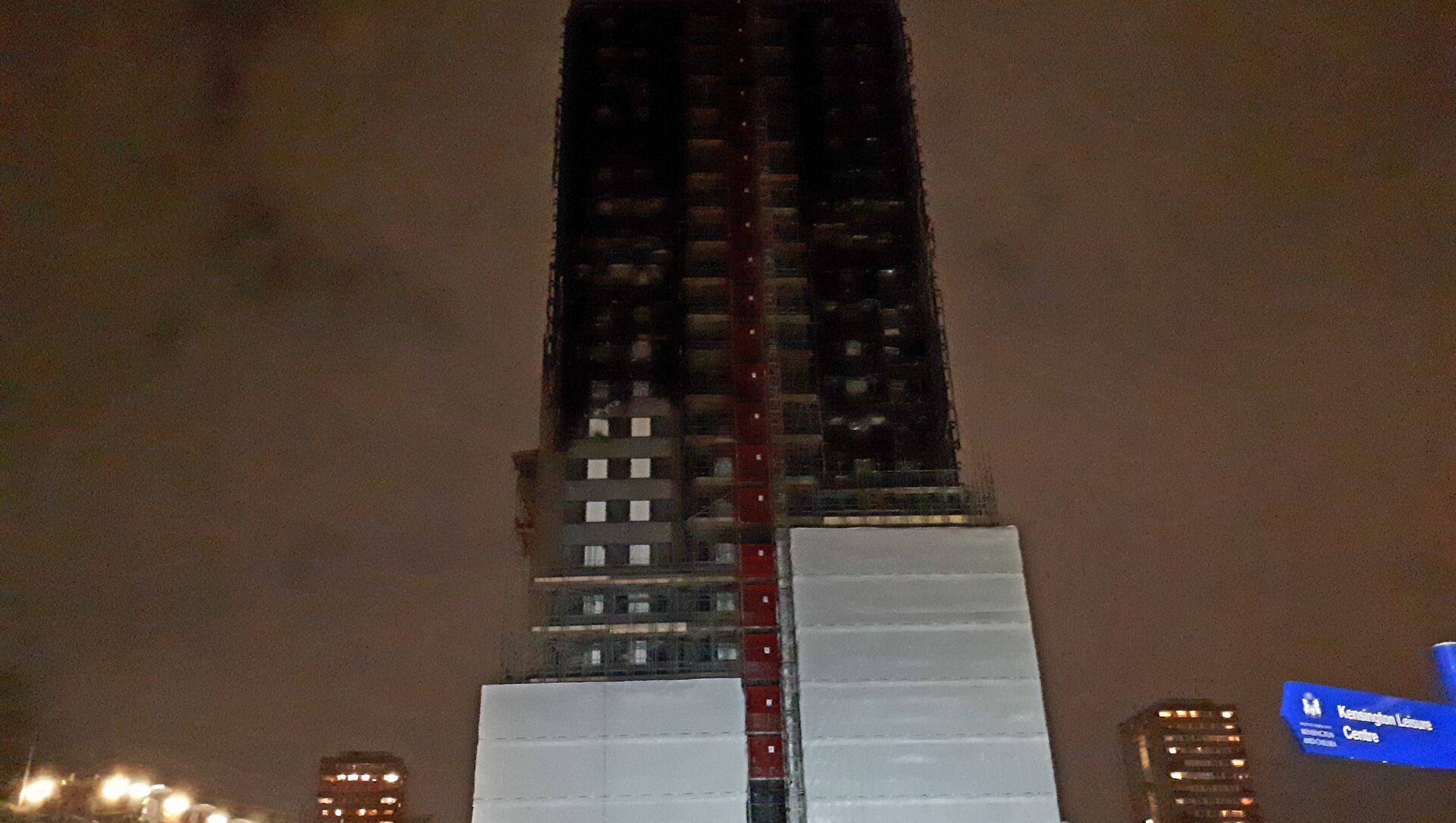Calls have been issued by the UK Labour Party for a national taskforce that would be able to "get a grip" on the cladding crisis, as a parliamentary debate set for Monday is to look into measures to protect tenants and leaseholders from the potentially unsafe facing material.
The British government had been earlier accused of trying to cover up a “national scandal” by informing local councils it was "appropriate" to block the release of information pertaining to high-rise buildings that feature aluminium composite cladding (ACM), which was implicated in the Grenfell Tower fire that killed 72 people in June 2017.
👉Public Safety Announcement👈
— Brindley House B'ham RTM (@BrindleyRTM) January 20, 2021
🚨MPs MUST PROTECT U.K.🚨
An estimated 1 in 70 people have unsafe cladding & unaffordable bills.
Many don’t realise they’re affected.
MPs -PROTECT OTHERS.
ACT LIKE YOU HAVE CLADDING.
>> tag your MP << #EndOurCladdingScandal @ukcag @BrumLag pic.twitter.com/MmsCCHWiW1
Despite a fridge-freezer being blamed for starting the fire, the cladding on the building was deemed culpable for its rapid spread.
The following year, the government banned combustible materials on new high-rise homes, and announced it was going to support local authorities in emergency remediation work.
"Today (Monday) needs to be a turning point for those affected by the cladding scandal. Millions of people have been sucked into this crisis due to years of dither, delay and half-baked solutions from the government,” Labour leader Sir Keir Starmer was quoted by Sky News as saying.
We can’t make people like @jengarratt homeless b/c the government is too slow sorting the cladding crisis. We need to be able to live in our homes w/out the fear of being turfed out on the streets b/c they’re deemed too dangerous to live in. #EndOurCladdingScandal @EOCS_Official https://t.co/jmH1LHJgbg
— Paul Afshar (@PaulRezaAfshar) February 1, 2021
Labour is urging an audit to establish the extent of dangerous materials on buildings, with upfront funding provided to remove the potentially dangerous cladding, and deadlines set in place to render homes safe.
Laws are also being called for to protect leaseholders from struggling with exorbitant bills over fire safety costs.
— Brindley House B'ham RTM (@BrindleyRTM) January 20, 2021
Demands are also voiced to have those found responsible for ‘rogue building practices’ involving installing cladding held to account.
"For many leaseholders, the dream of home ownership has become a nightmare.They feel abandoned, locked down in flammable homes and facing ruinous costs for repair work and interim safety measures," said Starmer.
He also urged the Conservative MPs to vote in parliament and “put their constituents' safety first”.
Cladding Scandal
Earlier, the British government was accused of trying to cover up the cladding scandal.
According to independent media organisation openDemocracy, local authorities relied on departmental guidance on disclosing information about high-rises with ACM.
A letter reportedly sent to local authority chief executives, cited by openDemocracy, showed the housing ministry guiding councils that when responding to Freedom of Information (FOI) requests about ACM “it is appropriate to withhold information that could lead to the identification of affected buildings”.
We know how hard this is for everyone fighting to #EndOurCladdingScandal.
— End Our Cladding Scandal (@EOCS_Official) January 25, 2021
You need to remember to look after your own mental health as a priority.
If you're really struggling please book an appointment with your GP, or contact the below charities for immediate help. pic.twitter.com/16ZbKDEcbZ
Earlier this year, following an FOI request, Hounslow council in west London said that it could not release information that would identify buildings with potentially hazardous cladding, and other London boroughs have refused to release similar information.
“This is a national scandal that needs to be exposed,” veteran Grenfell campaigner Moyra Samuels was cited as saying, accusing the government of seeking to cover-up of the scale of the cladding problem.


